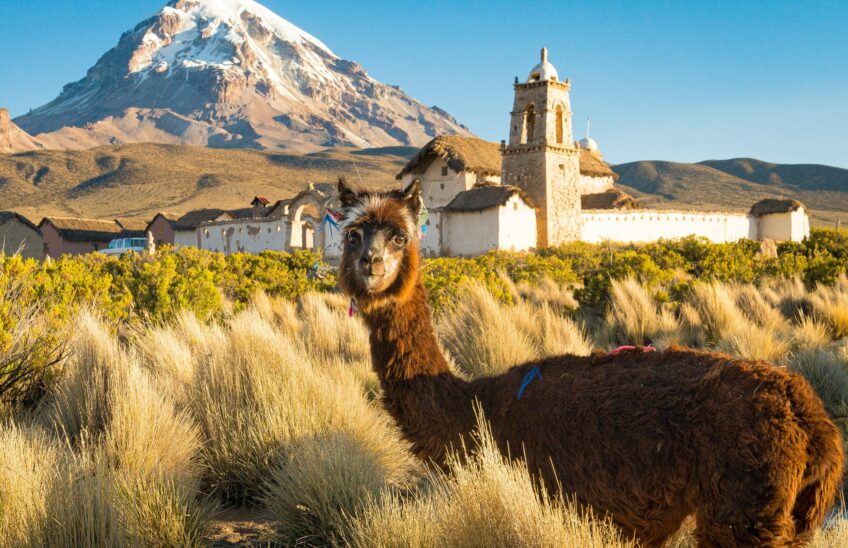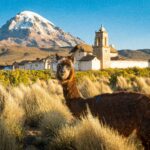Teach English in Bolivia
Embarking on a journey to teach English in Bolivia is an amazing opportunity that promises not only personal growth but also the chance to make a lasting impact on the lives of others. Bolivia, with its rich cultural tapestry and breathtaking landscapes, provides a unique backdrop for an immersive teaching experience. As you navigate the diverse communities and engage with eager learners, you’ll not only share the gift of language but also foster cross-cultural understanding.
Your presence can serve as a bridge between worlds, opening doors for countless individuals to access new opportunities and broaden their horizons. Bolivia’s warm and welcoming atmosphere, combined with the gratitude of your students, will create a fulfilling and transformative experience. By choosing to teach English in Bolivia, you’re not just imparting linguistic skills; you’re contributing to the empowerment of individuals and the advancement of communities. Embrace this rewarding adventure, and watch as your efforts create ripples of positive change in the lives of those you touch.
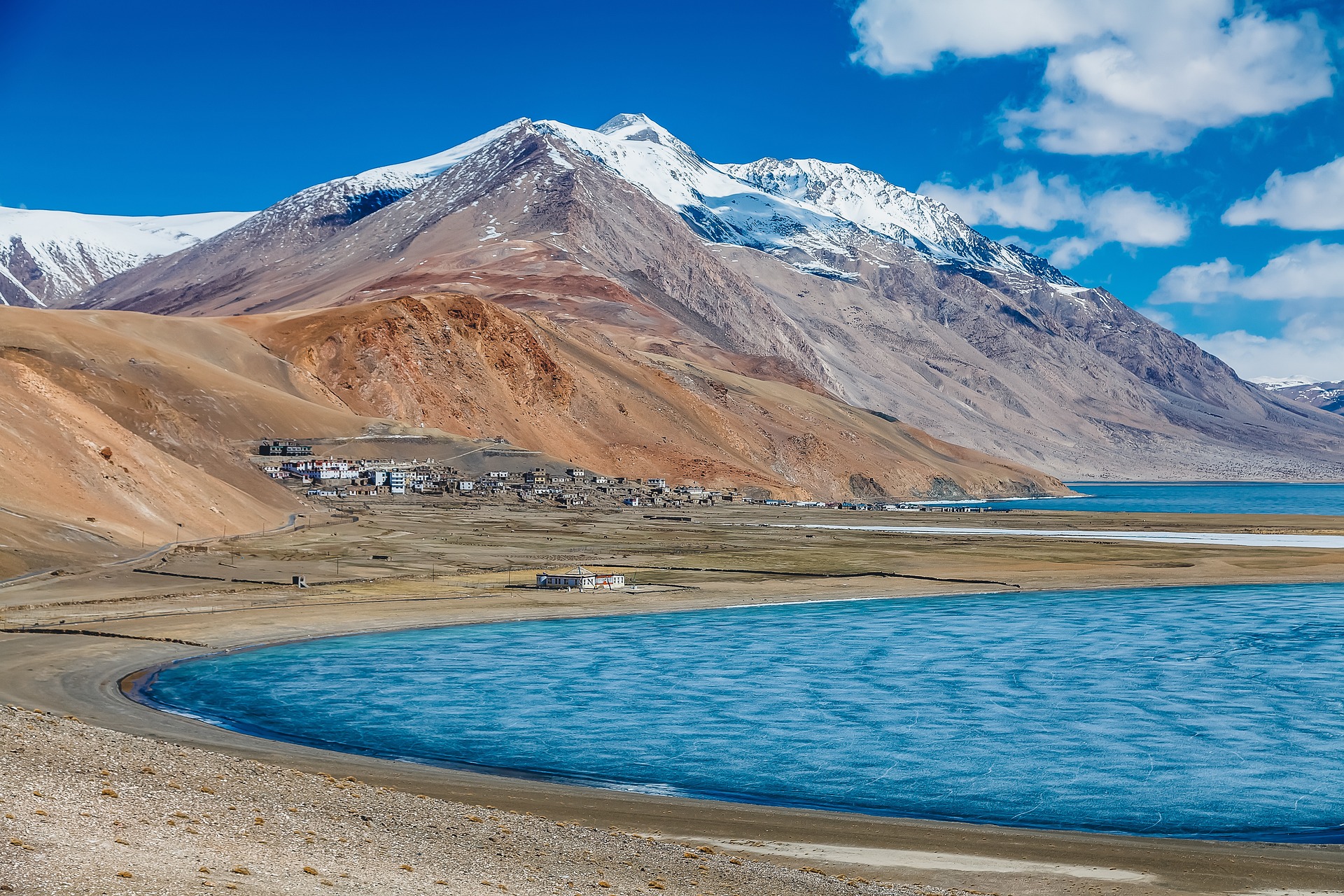
Most Popular Cities
La Paz: The administrative capital of Bolivia, La Paz is known for its stunning high-altitude setting in the Andes mountains. It is the highest capital city in the world, offering unique cultural experiences, historical sites, and vibrant markets.
Sucre: Recognized as the constitutional capital of Bolivia, Sucre is known for its well-preserved colonial architecture and historical significance. It is also a UNESCO World Heritage Site and serves as a center for learning and culture.
Santa Cruz de la Sierra: Located in the eastern lowlands, Santa Cruz is Bolivia’s economic hub and the country’s most populous city. It is characterized by a more tropical climate, modern infrastructure, and a growing urban environment.
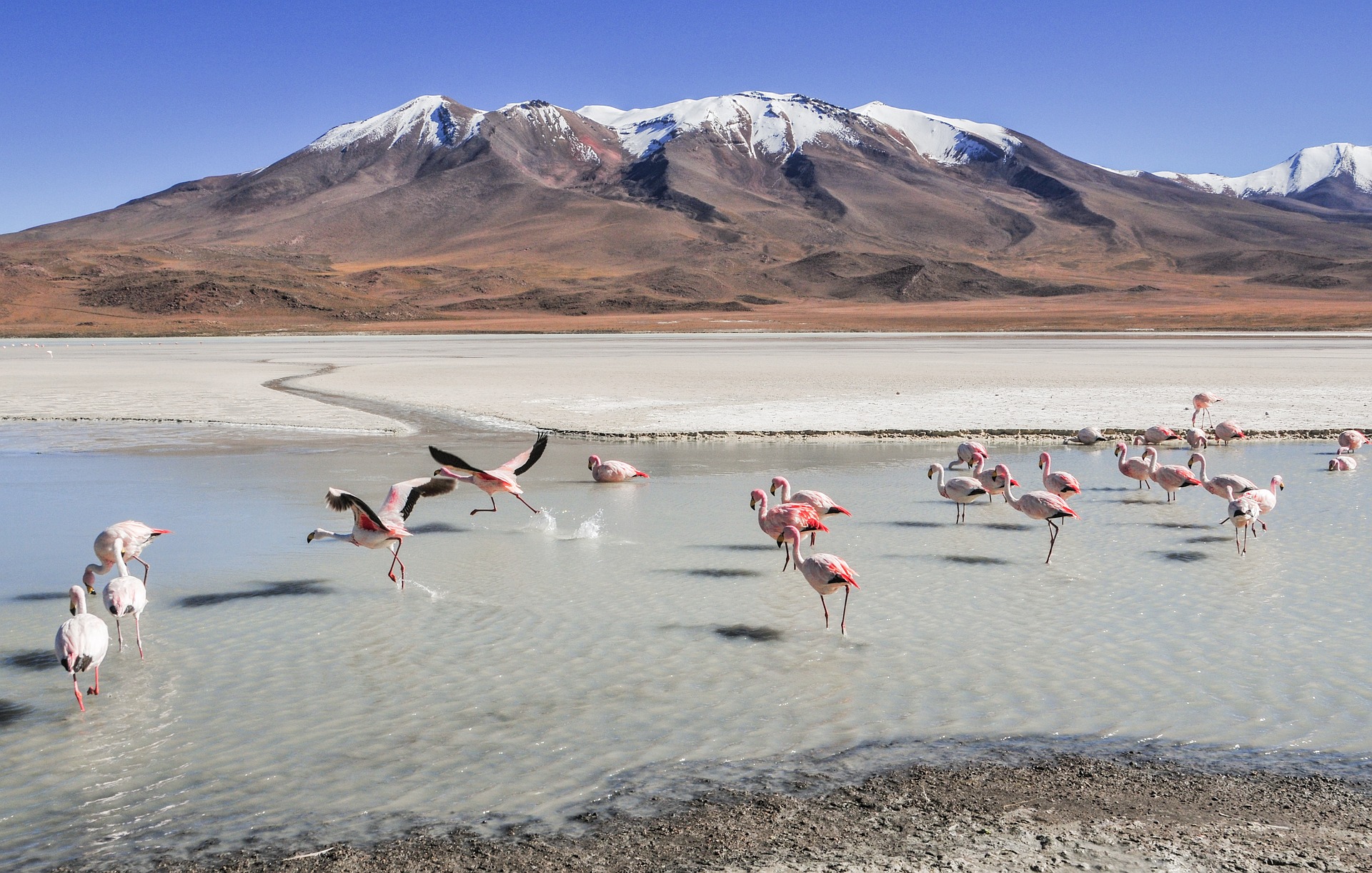
Explore the Country
Salar de Uyuni: The world’s largest salt flat, Salar de Uyuni, is a mesmerizing natural wonder. The vast expanse of salt creates a surreal landscape, especially during the rainy season when a thin layer of water turns it into a giant mirror.
Tiwanaku Archaeological Site: Explore the ancient ruins of Tiwanaku, a pre-Columbian archaeological site near Lake Titicaca. The site features impressive stone structures, including the Akapana Pyramid and the Gate of the Sun, providing insights into early Andean civilizations.
Yungas Road (Death Road) Biking: For the adventurous, bike down the Yungas Road, also known as the “Death Road.” This scenic and adrenaline-pumping experience takes you from the high-altitude plains to the subtropical Yungas region.
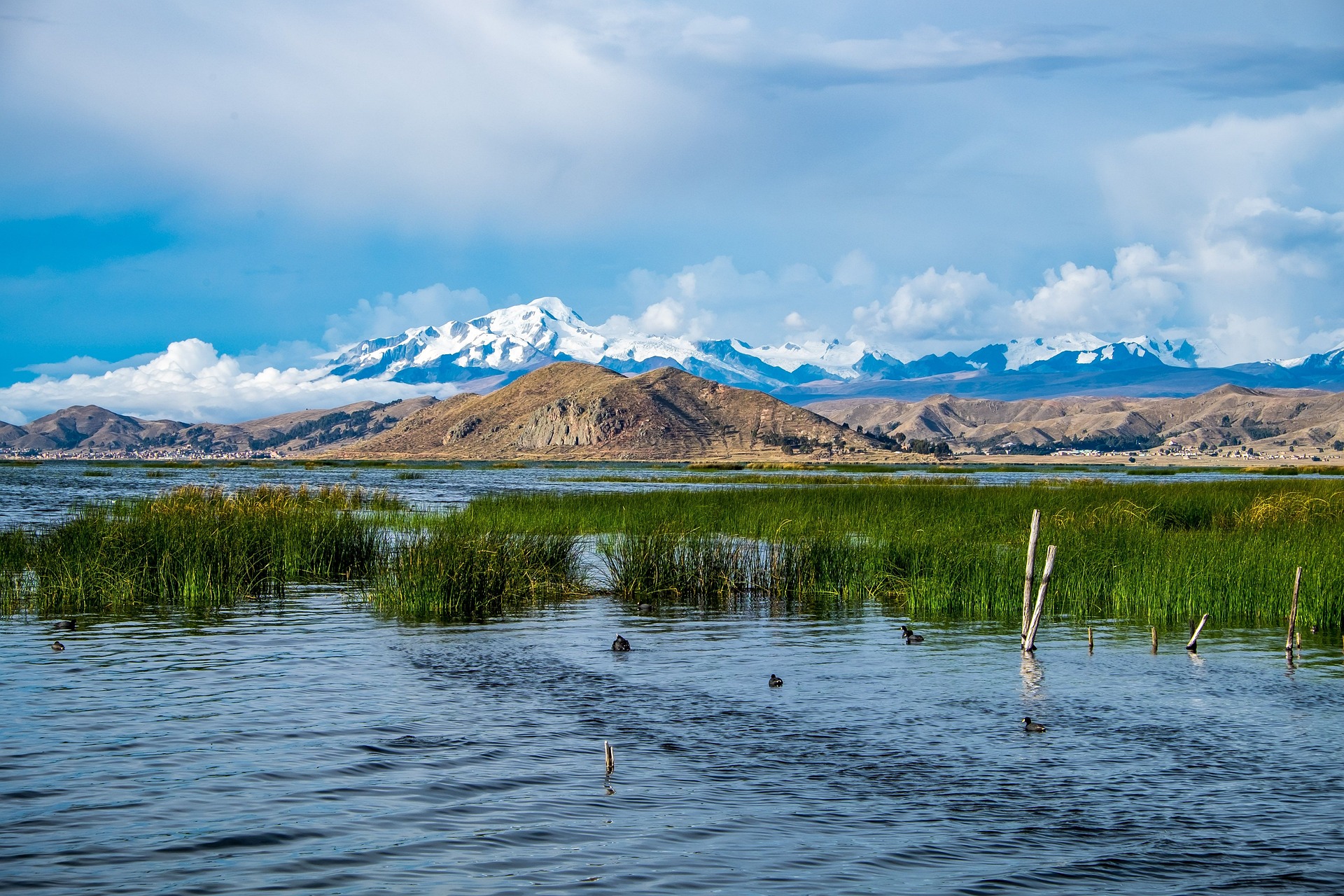
Lake Titicaca: Visit the highest navigable lake in the world, Lake Titicaca. Explore its islands, such as Isla del Sol and Isla de la Luna, which are rich in Inca history and culture. Take a boat ride and witness the unique lifestyle of the local communities.
Madidi National Park: Immerse yourself in the Amazon rainforest by visiting Madidi National Park. This biodiverse area is home to a wide range of flora and fauna, offering opportunities for birdwatching, jungle treks, and wildlife encounters.
La Paz Urban Adventures: Experience the vibrant city life of La Paz, Bolivia’s capital. Explore the Witches’ Market, visit the historic San Francisco Church, take a cable car ride for panoramic views, and wander through the bustling streets.
Chacaltaya and Valle de la Luna: Visit the Chacaltaya mountain, once home to the world’s highest ski resort. Combine this with a trip to Valle de la Luna (Valley of the Moon), known for its unique eroded rock formations.
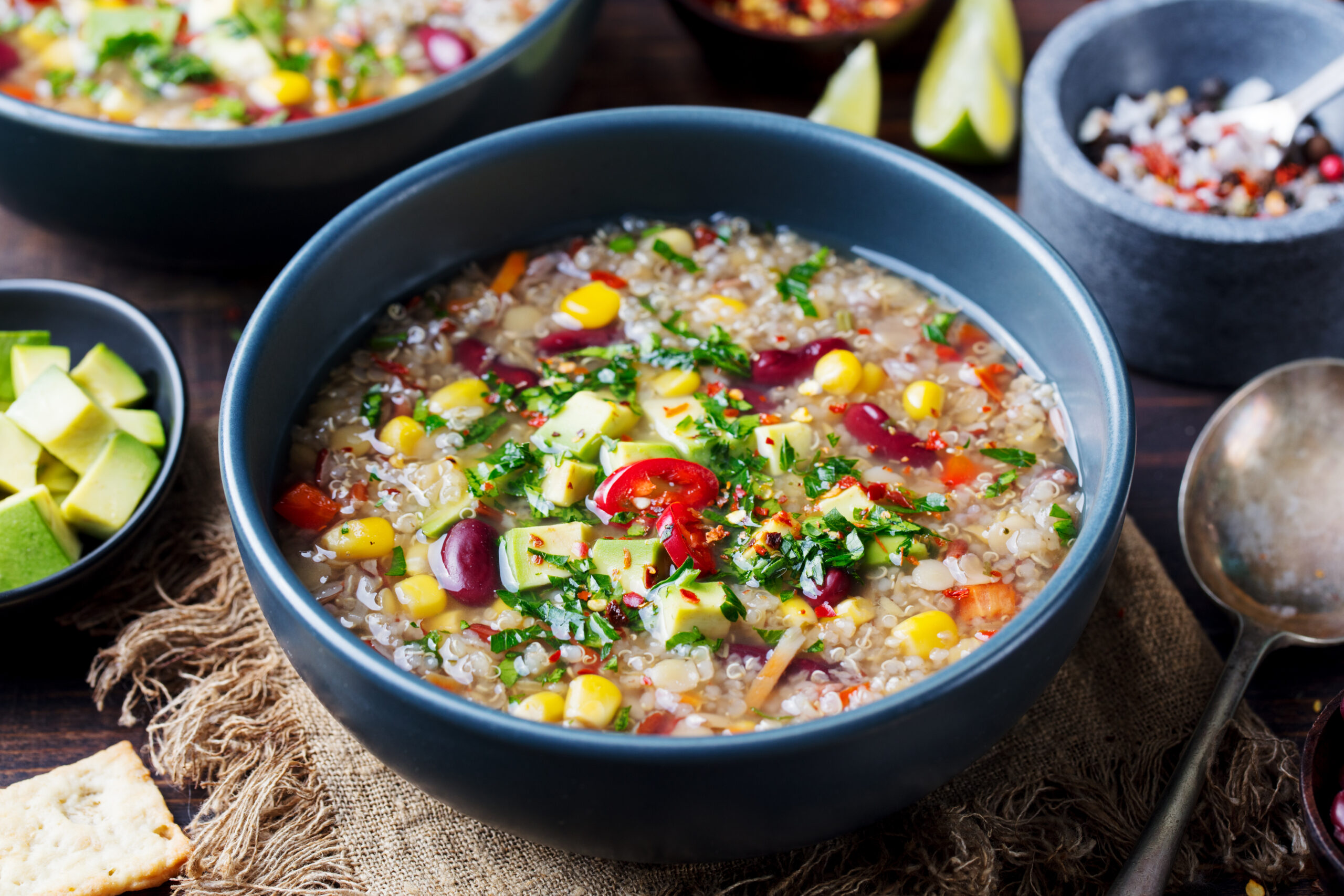
Food
Bolivia offers a diverse culinary experience influenced by its indigenous cultures and geographical variations. Here are five popular and unique foods you should try in Bolivia:
Salteñas: These savoury pastries are a Bolivian favourite, similar to empanadas but with a slightly sweeter and juicier filling. Salteñas typically contain a mixture of meat (beef or chicken), potatoes, peas, and sometimes olives and eggs, all wrapped in a slightly sweet dough.
Quinoa Soup (Sopa de Quinoa): Quinoa is a staple in Bolivian cuisine, and quinoa soup is a nutritious and delicious dish. It often includes vegetables, potatoes, and sometimes meat, providing a hearty and satisfying meal.
Silpancho: Hailing from the Cochabamba region, Silpancho is a traditional Bolivian dish featuring a breaded and fried veal or beef cutlet. It’s typically served with rice, fried eggs, and a generous portion of finely chopped tomatoes, onions, and parsley.
Salchipapas: This popular street food is a tasty and quick snack or meal. It consists of sliced and deep-fried sausage (salchicha) served with French fries (papas). It’s often accompanied by various sauces, including ketchup, mayonnaise, and spicy aji pepper sauce.
Api Morado: A warm and comforting drink made from purple corn, api morado is often sweetened with sugar and spiced with cinnamon and cloves. It’s consumed especially during colder weather and is a delightful way to experience traditional Bolivian flavours.
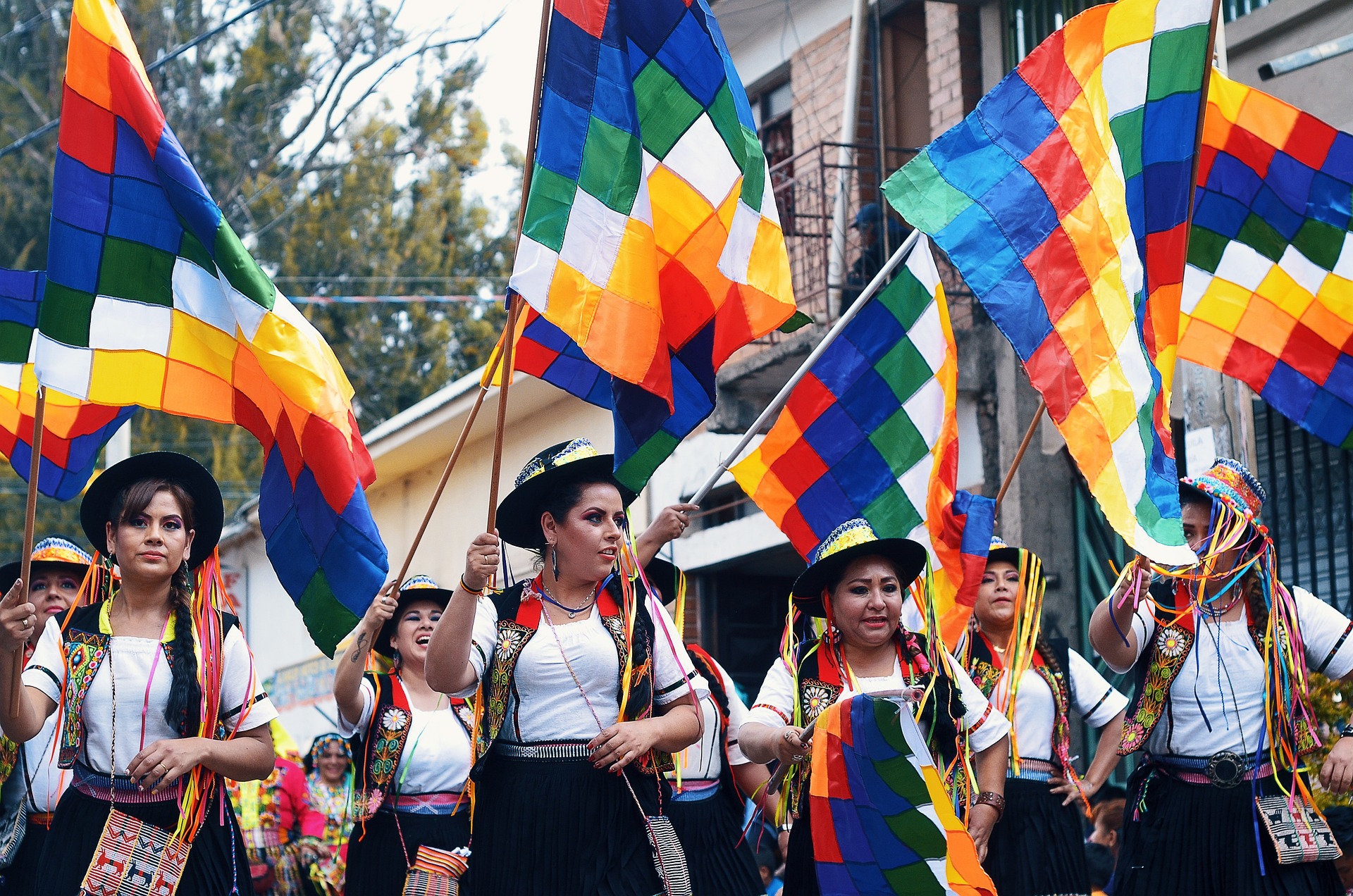
People & Culture
Bolivia has a rich and diverse cultural heritage shaped by its indigenous roots, colonial history, and geographic variations. Here are 10 aspects of Bolivian culture and its people:
Indigenous Influence: Bolivia is home to a significant indigenous population, including various ethnic groups such as Aymara, Quechua, and Guarani. Indigenous traditions, languages, and customs play a vital role in shaping the country’s culture.
Traditional Clothing: Traditional clothing is an essential part of Bolivian culture. Indigenous communities often wear distinctive attire that reflects their cultural identity. Colourful fabrics, intricate embroidery, and unique designs vary across regions.
Festivals and Celebrations: Bolivia hosts numerous festivals throughout the year, celebrating religious, cultural, and historical events. Festivals often involve vibrant parades, music, dance, and traditional rituals. The Carnival of Oruro is one of the most renowned celebrations.
Coca Leaf Tradition: The coca leaf holds cultural significance in Bolivia, particularly among indigenous communities. It is used in traditional ceremonies, rituals, and is chewed as a stimulant. However, it is essential to distinguish cultural practices from the illicit production of cocaine.
Agricultural Traditions: Agriculture is a fundamental aspect of Bolivian life, and traditional farming methods are passed down through generations. Quinoa, potatoes, and maize are staple crops, contributing to the country’s diverse and nutritious cuisine.
Religious Syncretism: Bolivia exhibits a unique blend of indigenous beliefs and Catholicism, a result of historical syncretism. Many traditional rituals and festivals have incorporated Catholic elements, showcasing the harmonious coexistence of different belief systems.
Music and Dance: Bolivian music and dance are vibrant expressions of culture. Traditional instruments like the charango and panpipes are commonly used, and dances such as the Cueca and Caporales are performed during celebrations and festivals.
Language Diversity: Spanish is the official language, but Bolivia is home to a variety of indigenous languages, including Aymara and Quechua. Bilingual education initiatives aim to preserve and promote indigenous languages.
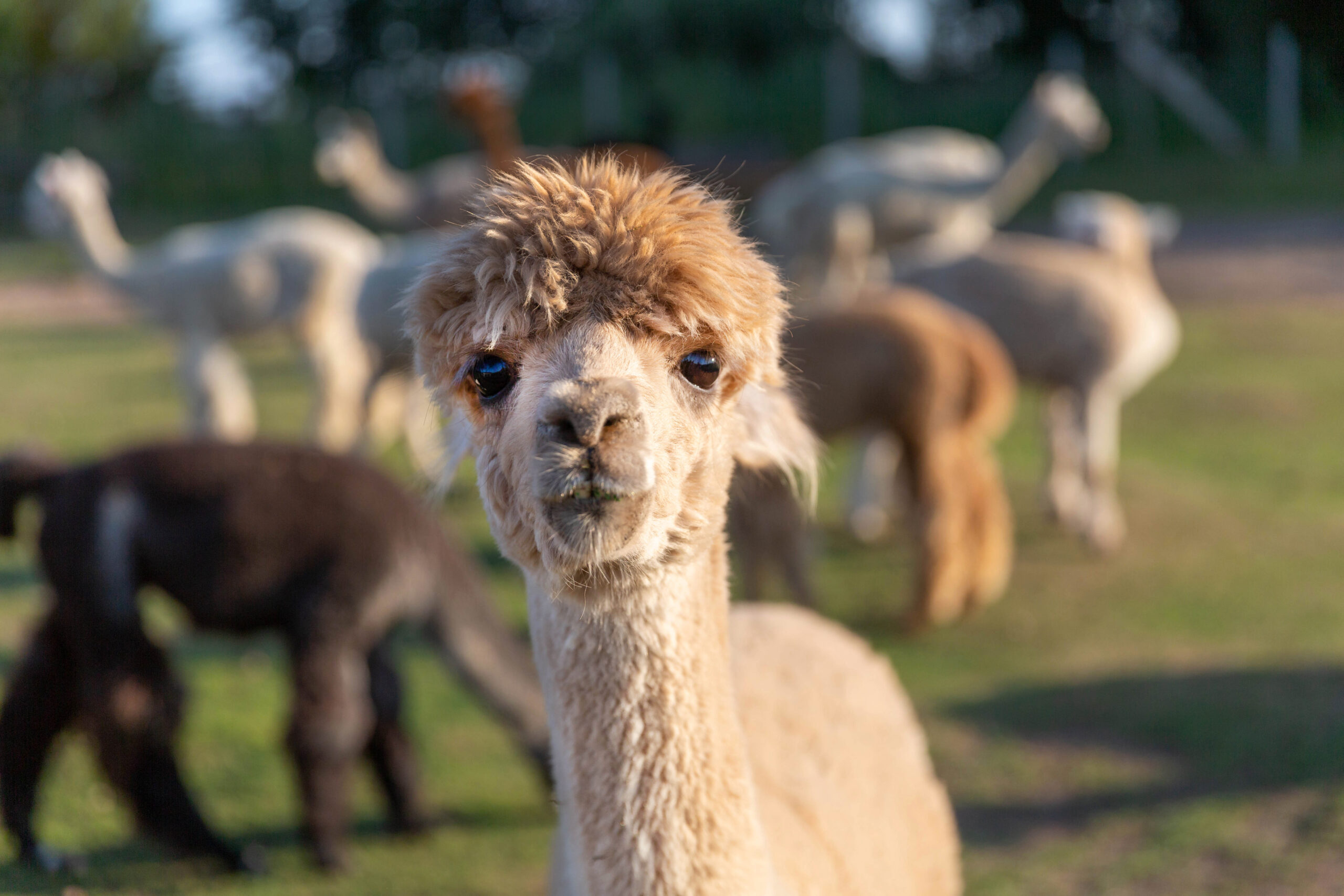
Qualifications
An internationally recognised TESOL Certificate will be required to teach English in Bolivia.
Get Started Today!
Embark on a transformative journey by teaching English in Bolivia, where cultural richness, diverse landscapes, and warm hospitality await. Bolivia offers a unique opportunity to make a lasting impact on the lives of enthusiastic learners while immersing yourself in a vibrant tapestry of traditions and history. From the surreal landscapes of Salar de Uyuni to the ancient ruins of Tiwanaku, Bolivia provides a captivating backdrop for both personal and professional growth.
Engage with students, explore the dynamic cities of La Paz and Sucre, and contribute to the empowerment of communities through language education. Teaching in Bolivia promises not only a fulfilling and meaningful experience but also a chance to be part of a cultural exchange that transcends boundaries. Embrace the adventure, and let Bolivia’s warmth and charm leave an indelible mark on your teaching journey.


